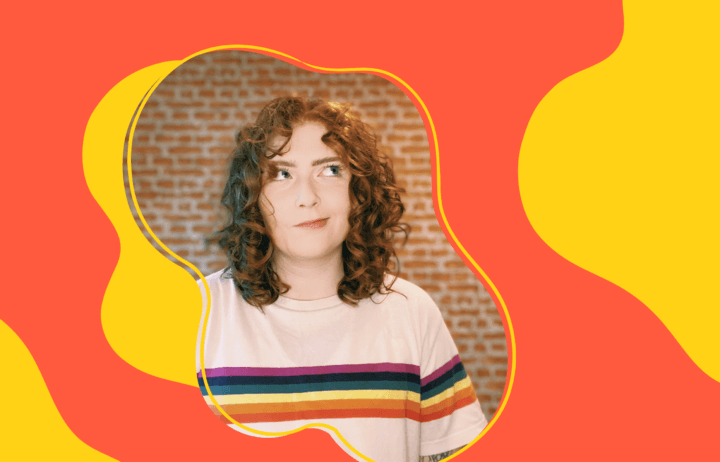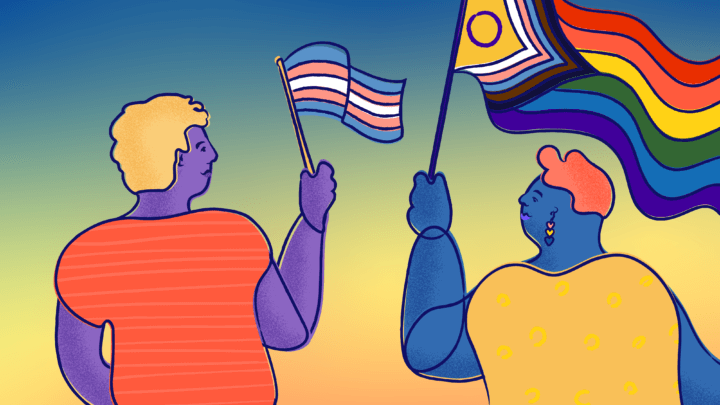Youth's Lives Every Day
Each May, Better Hearing and Speech Month provides a chance to raise awareness about communication disorders. For us at Trevor, it is a chance to support and celebrate LGBTQ+ young people with conditions that impact their hearing and speech. Hearing and speech conditions, like deafness, hearing impairment and loss, stuttering, muteness, and others, are very common, but we’ve found that LGBTQ+ young people with disabilities often lack the affirmation and support they deserve. And because you often can’t see a disability just by looking at someone, LGBTQ+ young people with communication disorders can find themselves feeling invisible.
Having a non-visible disability (a catch-all phrase for disabilities not perceivable just by looking at someone, like chronic pain, vision impairment, and learning disabilities) can be challenging — unfortunately, because non-visible disabilities can’t be seen right away, people who have them face misunderstandings and disbelief. Getting diagnosed with a non-visible disability is often a challenge; many people have to resort to self-diagnosis. As far as hearing impairment, The Trevor Project research found that 5% of LGBTQ+ young people reported experiencing deafness or serious difficulty hearing. Deaf LGBTQ+ young people reported significantly higher rates of discrimination and suicidal ideation in the last year due to their sexual orientation or gender identity compared to their hearing peers; deaf LGBTQ+ youth also reported high levels of family support reported approximately half the odds of considering or attempting suicide in the last year.
Data like this demonstrates the immense need for inclusion and support for deaf LGBTQ+ young people and LGBTQ+ young people with speech and hearing disorders. Accessibility, training, and disability competence are the key for people who work with or otherwise have relationships with LGBTQ+ young people; these are efforts that go far in making LGBTQ+ young people with disabilities feel comfortable and safe. Furthermore, LGBTQ+ young people with disabilities often face distinct forms of discrimination, so affirming both their gender and sexuality, as well as taking care of their needs, go hand-in-hand.
We’re doing our part to give every LGBTQ+ young person the accessibility they need. The Trevor Project is committed to supporting LGBTQ+ young people with speech and hearing conditions, and are available and accessible 24/7. Our text and chat services use text-based communication, and our phone Lifeline can be accessed with the support of an interpreter or voice-to-text/text-to-voice service. We are continuing to update all of our resources and guides to be ADA-compliant, and our social media and video content is all captioned, so everyone can enjoy.
LGBTQ+ young people, whatever your needs are, we are here for you. You deserve competent, accessible care, and we are working to ensure every LGBTQ+ young person gets that care they deserve.
Sue Cardenas-Soto is a Copywriter at The Trevor Project, the leading suicide prevention and mental health organization for lesbian, gay, bisexual, transgender, queer & questioning (LGBTQ+) young people. If you or someone you know is feeling hopeless or suicidal, our trained crisis counselors are available 24/7 at 1-866-488-7386 via chat www.TheTrevorProject.org/Get-Help, or by texting START to 678-678.


